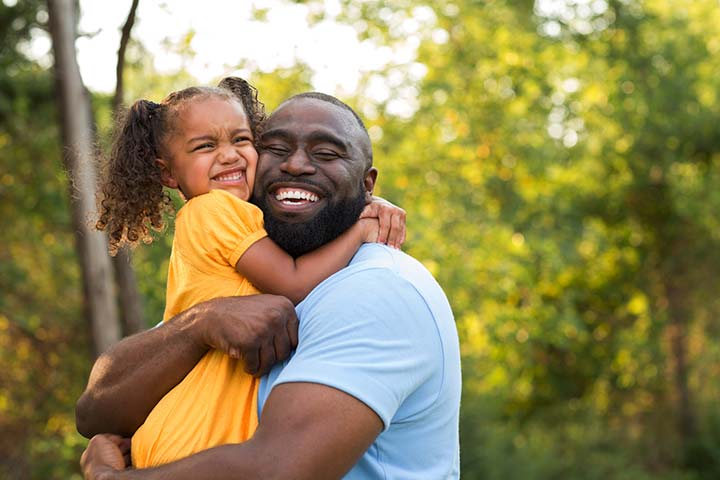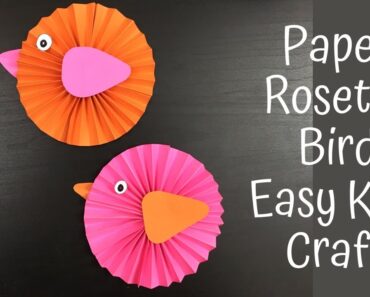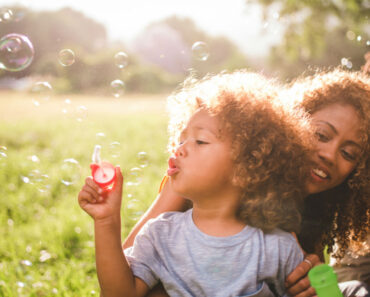Image: iStock
“Hugs can do great amounts of good — especially for children.” —Princess Diana
A hug holds a secret weapon. It has the power to calm a person and is an excellent means to show love and affection.
Several studies have proven that children showered with tender forms of affection, such as a hug, tend to have high emotional intelligence and an optimistic attitude towards life. In short, hugs are needed for a child’s physical and mental health.
If you plan to give your child an inexpensive and well-thought gift for life, just hug them when they need it. As easy as it may seem, this act of affection will determine how content they are. Here’s more on the benefits of hugging kids.
12 Benefits Of Hugging Kids
You might think that hugging is just another form of showing affection, but you’ll be surprised to know that it offers many benefits that you might not have thought of. Read on as we tell you the many proven benefits of hugging for you and your child.
1. Hugging improves the parent-child bond
A hug from a person we like helps release the “feel-good” hormones, namely dopamine, serotonin, and oxytocin (1). The release of these neurotransmitters makes one happy and relaxed and improves mood (2) (3). This general feeling of happiness would make your child want to hug you more, thereby strengthening your bond. Also, hugging helps your child recognize your smell, which again helps bring you closer.
2. Hugging increases the levels of oxytocin
The levels of oxytocin, also known as the “cuddle hormone,” increases during hugging. This hormone plays a major role in the bond between a mother and a child. And what’s more, it’s also proven to reduce inflammation, improve wound healing, and lessen cravings (4) (5) (6). So, the next time your child gets hurt, give them a tight hug and relieve their pain.
3. Hugging is a heart-saver
The calming effect of oxytocin brings down the heart rate and blood pressure to a healthy level. This means that giving your child a warm hug is an ideal way to calm them down when they’re upset. So, now, you know a secret to a healthy heart for you and your child (7).
4. Hugging makes one smarter
Sensory touch during the initial years of life helps in healthier brain development among children. This is because touch is the first sensory stimulation in infants. When you hug your child, the skin-to-skin contact stimulates their brain and helps them experience the world around them (8).
Studies also suggest that children nurtured early in life by their mothers have a larger hippocampus than those who were not nurtured well. The hippocampus is a brain structure that plays a crucial role in improving memory, learning, and stress response (9). With childhood being the age of rapid brain development, an occasional nurturing hug would do wonders for your child’s growth and development.
5. Hugging boosts confidence
Hugging assures your children that they are loved and cared for in the family. This ultimately helps them develop an optimistic outlook towards life and improves their confidence and self-worth.
6. Hugging is a stress buster
High levels of cortisol, a stress hormone, can lead to anxiety and depression. On hugging, the oxytocin released balances the cortisol levels in your body and produces a calming effect, thus reducing anxiety and stress. So, now you know what you should do when your child is in an uncomfortable situation (10).
7. Hugging helps reduce tantrums
If your child has been throwing temper tantrums lately, it may mean that they’re dealing with some inexpressible emotions on the inside. Hugging is a great way to calm them down when their emotions are all over the place.
Life gets tough sometimes, and even we adults tend to lose control over our emotions in uncontrolled situations. It is even more difficult for children to control theirs. When you hug them during their emotional turmoil, it will help them calm down and gain better control over their emotions.
8. Hugging increases resilience
High amounts of adrenaline and cortisol are released into the bloodstream when one is highly stressed. Children are amateurs in coping with stress, which only lets tension bundle up (11). This could lead to anxiety and depression. Hugs, on the other hand, release oxytocin, which subdues cortisol levels and increases resilience in children (12).
9. Hugging teaches empathy
The contact made during hugging acts as an emotional bridge between you and your child. By giving them nourishing hugs frequently, you teach them to recognize the feelings of others. A hug helps your child connect with you emotionally, which is the foundation for empathy and love.
10. Hugging is good for health
A hug is not only good for one’s mind but also good for one’s physical health. Hugging is an immune booster. The slight pressure caused on the chest while hugging helps stimulate the thymus gland (13). This gland regulates the production of white blood cells, keeping infections at bay.
11. Hugging helps in physical growth
Hugging your child is nourishing and required for their proper physical growth and development (14). The physical touch during hugging stimulates the senses, which in turn, aids in proper physical growth.
Studies have shown that physical touch in the form of kangaroo care helps boost growth in the case of incubated and low-birthweight babies and that children deprived of this physical touch do not reach their potential growth state (15).
12. Hugging makes one happy
All the hormones that are released during hugging cheer both parties up. A hug from a loved one is as relaxing as any meditative practice. It is warm, comforting, and feels secure. The sense of trust that this simple act renders would help you both relax in each other’s arms. It will make you feel that all is well in this world, and that is enough reason for you to hug your child.
Effects Of Not Being Hugged As A Child
Hugs represent affection and care in most cultures. If you belong to a culture where hugging is a common practice and your child is not hugged enough, they may face the following struggles in the future (8) (16).
- They may have trouble identifying emotions. Hugging improves empathy. Children brought up in a hug-free home may struggle to identify their own feelings and those of others.
- They may have trouble forming relationships later in life.
- They may show reduced self-esteem in the future.
- Hugs mean trust. Hence, children who are not hugged when wanted may struggle with trust issues. They may take time to believe someone.
- They may question themselves frequently and fight to accept their weaknesses.
Why You Should Not Force Your Child To Give Hugs
When children are forced to hug someone despite their reluctance and beyond their comfort level, it carries the message that they should subdue their will to somebody’s wishes. It may give them the impression that the authority on themselves and their body lies in somebody else’s hand. Your child may even be compelled to obey the rules of a predator in case they meet one. This is least empowering and not a message you would want to convey to a child.
Let your child know that hugging is not obligatory during any family gatherings and other parties. It should only happen if they like the other person, whether it is a grandparent, friend, or any other relative for that matter. Teach them not to hug strangers and not be lured by any presents in exchange for a hug or any other touches (17). Highlight the importance of their comfort zone and let them understand that it is their will alone that matters when it involves hugging someone.
Now that you have understood the importance of a hug, go ahead and connect with your child better and strengthen your bond with a hug. A hug desirable from both sides offers many benefits. So, the next time your child wants to hug you, do not hesitate — it would help them make their life better.
References:
2. E. Baixauli;Happiness: Role of Dopamine and Serotonin on Mood and Negative Emotions;Emergency Medicine (2017).
3. D. Dfarhud, M. MALMIR, and M. Khanahmadi;Happiness & Health: The Biological Factors – systematic review article;Iranian Journal of Public Health (2014).
4. 4 Facts About Hugs: Why You Should Embrace The Embrace;Dignity Health
5. K. U. Moberg, L. Handlin, and M. Petersso3;Self-soothing behaviors with particular reference to oxytocin release induced by non-noxious sensory stimulation;Frontiers in Psychology (2014).
6. L. W. Ayers et al.;Oxytocin Reduces Background Anxiety in a Fear-Potentiated Startle Paradigm: Peripheral vs Central Administration;Neuropsychopharmacology (2011).
7. J. Gutkowska, M. Jankowski, and J. Antunes-Rodrigues;The role of oxytocin in cardiovascular regulation;Brazilian Journal of Medical and Biological Research (2014).
8. E. L. Ardiel and C.H. Rankin;The importance of touch in development;Paediatrics Child Health (2010).
9. Mom’s love good for child’s brain;Washington University in St. Louis
10. Can You Kiss and Hug Your Way to Better Health? Research Says Yes;The Trustees of the University of Pennsylvania
11. The kids aren’t all right; American Psychological Association.
12. Y. Li, A.L. Hassett, and J.S. Seng; Exploring the mutual regulation between oxytocin and cortisol as a marker of resilienceHHS Author Manuscripts (2018).
13. Can a hug have therapeutic benefits?;Concorde Career Colleges
14. The science of Affection;United Nations.
15. A. Bera et al.;Effect of kangaroo mother care on growth and development of low birthweight babies up to 12 months of age: a controlled clinical trial;Acta Paediatrica (2014).
16. Mariana von Mohr, Louise P. Kirsch, and Aikaterini Fotopoulou;The soothing function of touch: affective touch reduces feelings of social exclusion;Springer Nature (2017).
17. S. Yoshida et al.;Infants Show Physiological Responses Specific to Parental Hugs;iScience (2020).


































